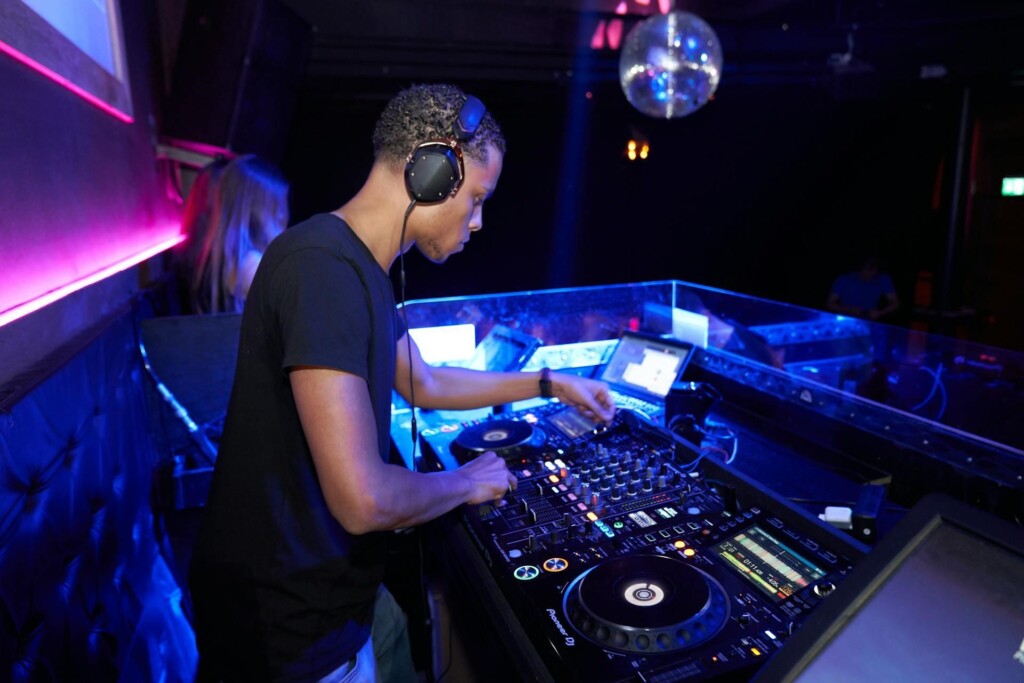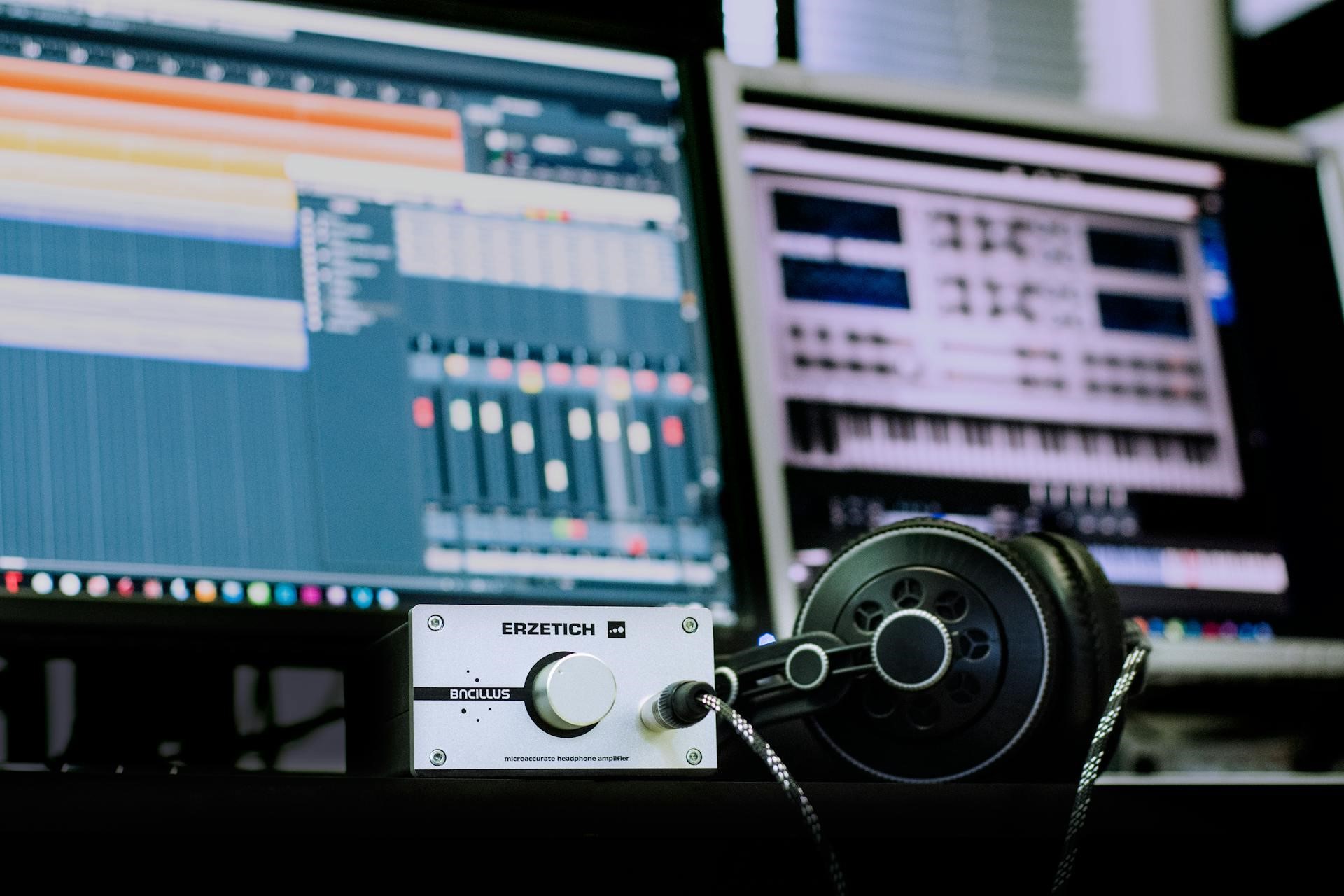Music production has come a long way from the days of analog recording and manual mixing. Producers once spent hours fine-tuning recordings, adjusting levels by hand, and carefully splicing samples. With the rise of digital audio workstations (DAWs) like FL Studio and Logic Pro, the workflow became more streamlined, offering artists powerful tools to edit and mix tracks efficiently.
Now, AI technology is pushing music production even further, automating time-consuming tasks like sample slicing, beat matching, and mastering. Instead of spending hours adjusting levels, producers can now rely on AI-based software to make intelligent suggestions and corrections, letting them focus more on the creative side of music-making.

How AI Enhances the Creative Process for DJs and Producers
One of the biggest challenges in music production is balancing creativity with technical execution. AI is helping by automating tedious tasks, giving artists more room to experiment with new sounds and ideas.
– Automated Beat Matching & Syncing: AI can analyze tracks and adjust tempo, helping DJs create seamless transitions.
– Melody and Chord Assistance: Instead of struggling to write harmonies from scratch, AI tools can generate chord progressions that sound natural and musical.
– Sample Identification & Arrangement: AI-driven tools can automatically recognize and organize audio samples, making it easier for producers to find the right sounds.
For DJs, real-time AI-powered sync capabilities allow for smoother performances where beats match seamlessly without manual adjustments. Producers also benefit from AI detecting off-key notes or suggesting tweaks that make melodies flow better. This integration of AI-driven tools is enabling artists to make high-quality music more efficiently than ever before.
AI in Chord Progressions and Melody Generation
Creating the perfect chord progression can be one of the most challenging parts of producing a track. AI-powered tools like an AI chord progression generator make this process easier by suggesting harmonically rich chord transitions that fit a song’s style and mood.
AI chord progression generator tools analyze existing music structures and help producers craft pleasing harmonies without extensive music theory knowledge. These AI systems study common chord patterns and predict the next logical step in a sequence, giving producers a foundation to build their melodies.
For artists using DAWs like FL Studio and Logic Pro, these AI features seamlessly integrate, offering suggestions within the software for immediate application. Melody generators take this even further, providing fresh musical ideas when inspiration is running low. Instead of staring at a blank project file, musicians can have AI suggest potential hooks and lead lines that fit with their sound.
AI’s Role in Sound Design and Sampling
Sound design and sampling are crucial elements of modern music production. AI is making these processes more efficient by handling repetitive tasks like sorting, tagging, and modifying sound files.
– Smart Sample Recognition: AI can categorize sound files in a music library, making it easier to locate the right sample.
– Beat Slicing and Arrangement: DJs and producers can use AI-powered sample slicing to instantly chop loops into segments that sync perfectly with a track.
– Intelligent Sound Selection: Tools that suggest optimal sound choices based on an artist’s existing track help streamline the production process.
By analyzing large datasets of music, AI can recommend drum patterns, synth patches, and instrumental layers that fit the vibe of a song. This feature is especially helpful for producers looking to explore new genres or update their sound without starting from scratch.
AI & Efficient Music Storage and File Management
Working with large music libraries means managing countless samples, project files, and reference tracks. AI simplifies music storage by automatically organizing files based on characteristics like tempo, key, and mood.
Music storage solutions powered by AI help producers and DJs consolidate their massive collections while maintaining easy accessibility. This means artists can spend less time searching through folders and more time creating.
– Auto Sorting: AI categorizes audio files based on chords, beats, and instruments.
– Smart Tagging: Systematically labels files by genre, BPM, and mood for quick retrieval.
– Optimized Storage Space: Cloud-based AI systems help producers manage file storage efficiently, ensuring they’re working with an organized setup that doesn’t slow down their workflow.
Having structured music storage also helps prevent duplicate files and ensures important recordings or samples don’t get lost in cluttered folders.
AI and Real-Time Play & Sync Capabilities for DJs
For live DJs, AI’s ability to sync tracks instantly is a game-changer. Modern DJ software incorporates machine learning to detect chord structures, key signatures, and tempo fluctuations, making it easier to match tracks seamlessly.
– Auto Key Detection: AI instantly identifies a song’s key so DJs can blend harmonically compatible songs.
– Instant BPM Matching: AI tools adjust a song’s tempo to align with a DJ’s set in real-time.
– AI-Powered Mixing Algorithms: Some platforms even analyze an entire playlist and generate recommendations for the next best song to play.
With these advancements, mixing music live has never been more intuitive. DJs can focus more on crowd engagement and performance rather than worrying about mismatched beats or clashing melodies.
How AI is Changing the Way Artists Listen, Mix, and Produce
AI is not just helping with creation but also improving the way artists listen and fine-tune their tracks. Some AI-driven software tools analyze a mix and provide suggestions to enhance clarity, balance, and loudness.
– AI-Assisted Listening: Software can break down a mix and highlight areas that need adjustment.
– AI-Driven Mastering: Platforms exist that automatically tweak EQ, compression, and normalization to match industry-standard levels.
– Genre Adaptation: Machine learning tools can study a producer’s preferred style and suggest production techniques that fit their aesthetic.
This level of responsiveness allows musicians to improve their sound with minimal manual tweaking. Instead of spending hours adjusting levels, they can use AI to get immediate feedback on what sounds best.
Challenges and Limitations of AI in Music Production
While AI is revolutionizing music production, it does come with challenges.
– Creative Limitations: AI can suggest chord progressions or melodies, but it can’t fully replicate human emotion.
– Over-Reliance on AI: Some artists worry that automation might reduce originality, leading to repetitive-sounding tracks.
– Ethical Concerns: There’s an ongoing debate about artist credit and how much ownership AI-generated music should have.
Despite these issues, many producers see AI as a tool rather than a replacement for creativity. When used correctly, it enhances the music-making process without taking away the human touch.
The Future of AI in Music Production
AI in music production is only going to grow. As machine learning improves, we can expect even more sophisticated tools that blend automation with human creativity. Tools like AI-assisted arrangement, sound prediction, and intelligent music storage are setting the foundation for the next generation of producers and DJs.
The key will be finding a balance where AI complements artistry instead of replacing it. By integrating these tools into their workflow, musicians can focus on what truly matters—bringing their vision to life through sound.
